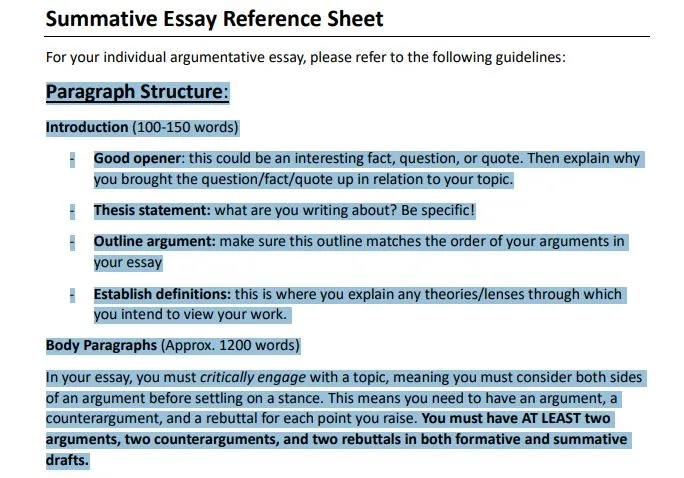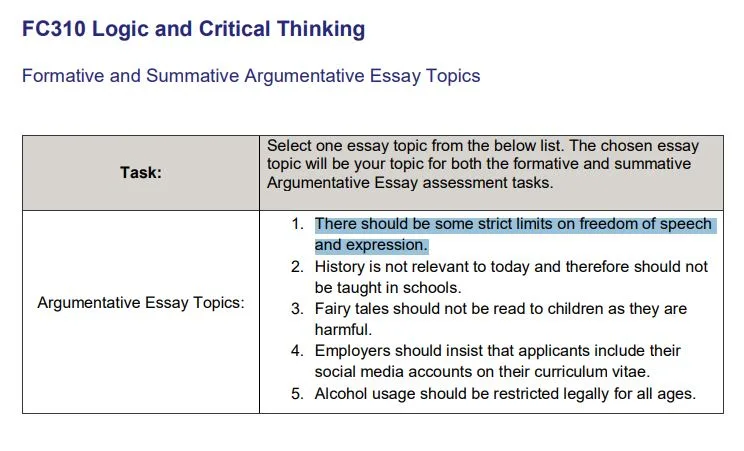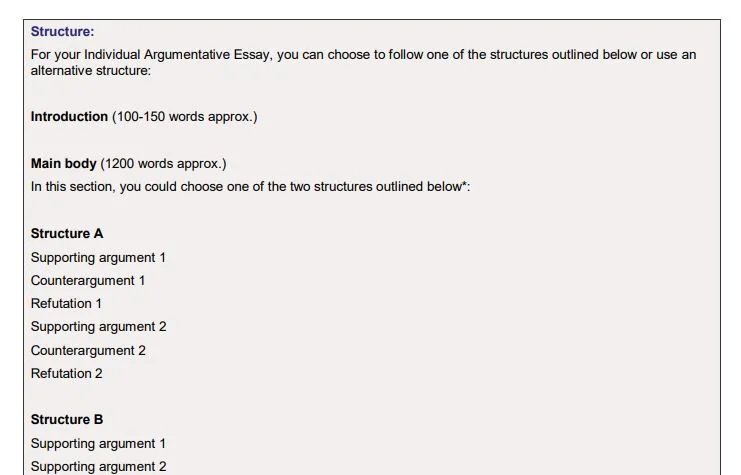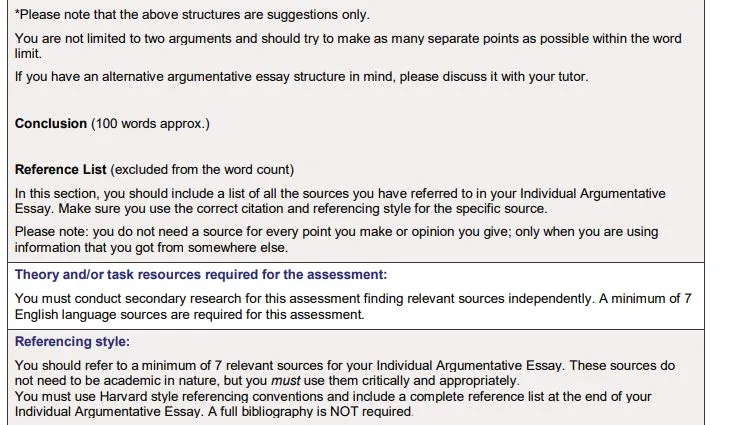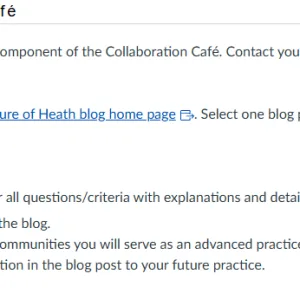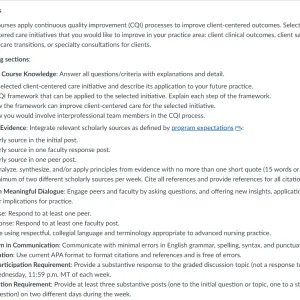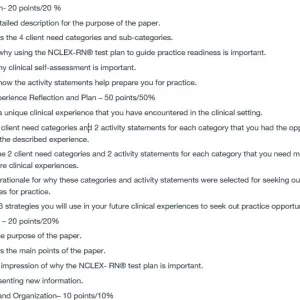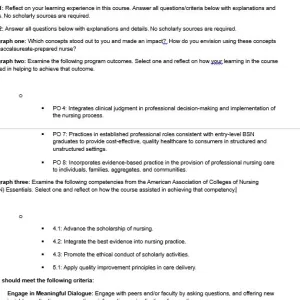Class: FC310 Logic and Critical Thinking
FC310 Summative Essay
Topic: There should be some strict limits on freedom of speech and expression.
Paragraph Structure:
Introduction (100-150 words)
– Good opener: this could be an interesting fact, question, or quote. Then explain why
you brought the question/fact/quote up in relation to your topic.
– Thesis statement: what are you writing about? Be specific!
– Outline argument: make sure this outline matches the order of your arguments in
your essay
– Establish definitions: this is where you explain any theories/lenses through which
you intend to view your work.
Body Paragraphs (Approx. 1200 words)
In your essay, you must critically engage with a topic, meaning you must consider both sides
of an argument before settling on a stance. This means you need to have an argument, a
counterargument, and a rebuttal for each point you raise. You must have AT LEAST two
arguments, two counterarguments, and two rebuttals in both formative and summative
drafts.
Each paragraph (argument/counterargument/rebuttal) should have the following:
– Claim: What are you trying to say? Be precise.
– Evidence: Use this to back your claims. MUST include be empirical data to receive full
marks. Write 1-2 sentences explaining the data and CITE where you found it.
– Analysis: There are TWO tasks you must do here to receive a full mark. First, connect
you evidence to your claim. Why does the evidence make the claim true? Second,
connect your argument to your thesis statement. Why does your claim make your
thesis statement correct?
Conclusion (100 words approx.)
– Paraphrase your thesis statement: do not rewrite it word for word.
– Summarize the main points of your essay: Explain again how they support your
thesis statement
– Explain the significance of your findings: Why does your work matter? What does it
say about society/people/the social sciences?
Solution
“Freedom of speech is not absolute,” said former U.S. Supreme Court Justice Oliver Wendell Holmes, a statement that remains deeply relevant in today’s increasingly digital and polarized world. While the right to express oneself freely is fundamental to democracy, history and current events show that unchecked speech can lead to real-world harm, including violence, misinformation, and social unrest
Buy full paper for $10.00
